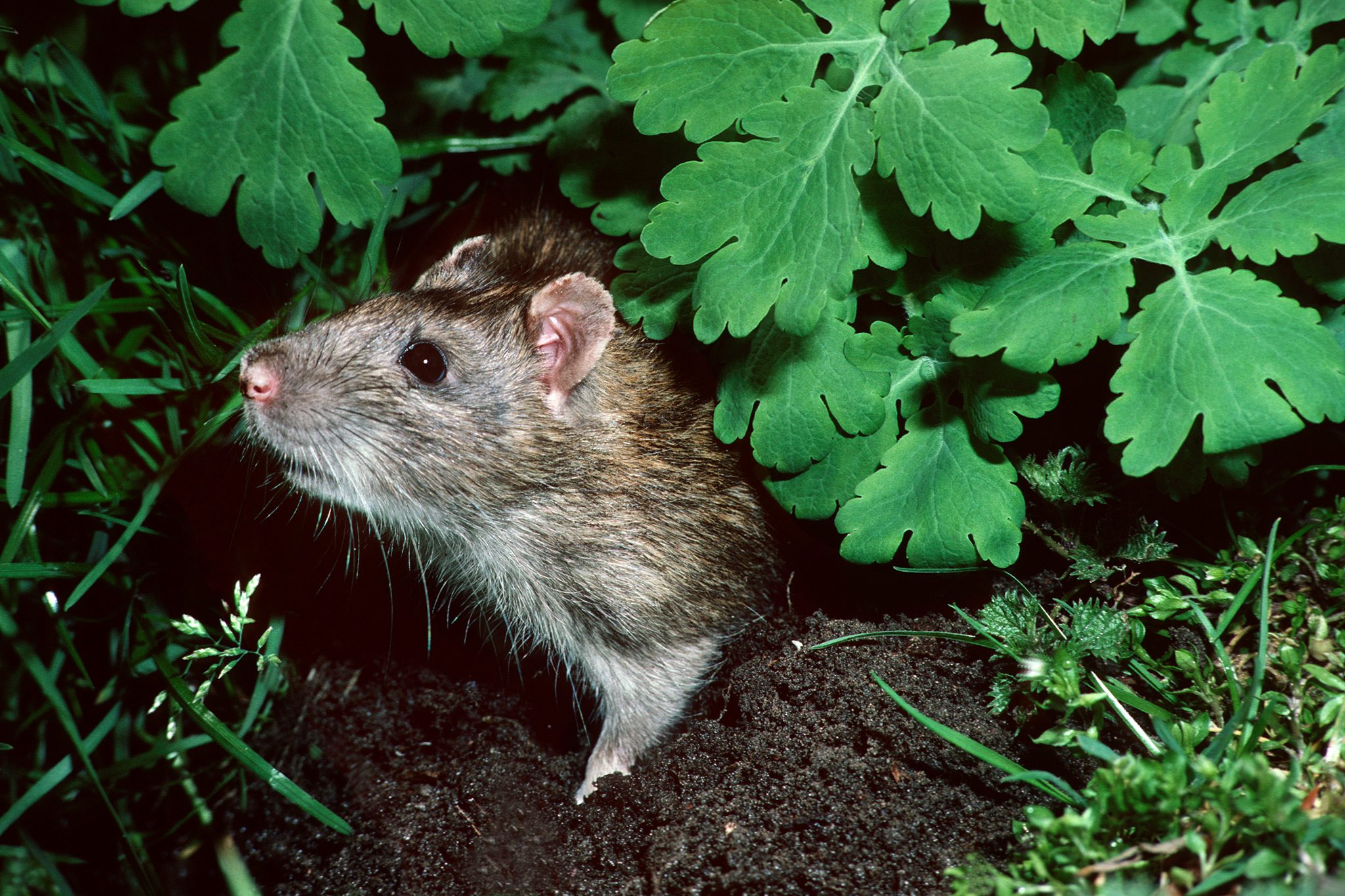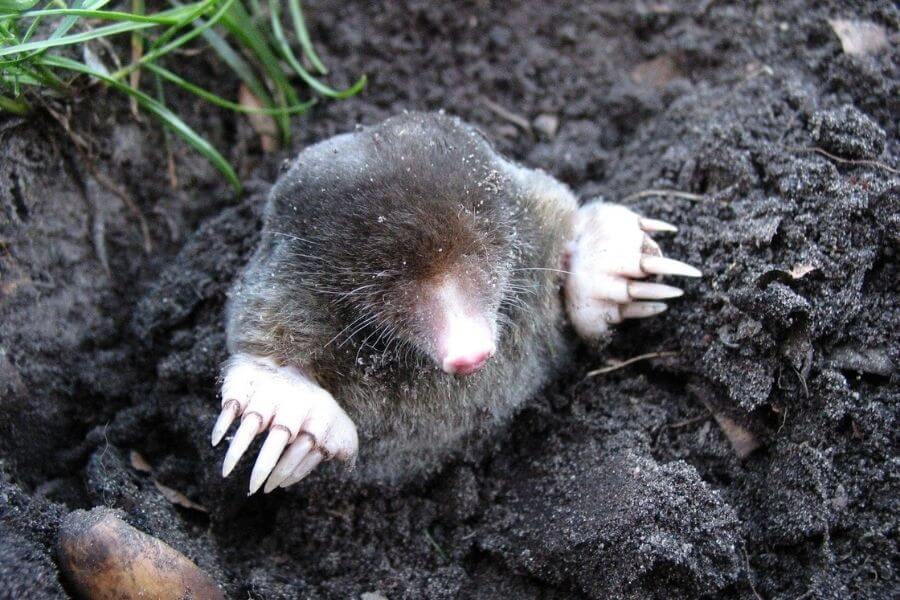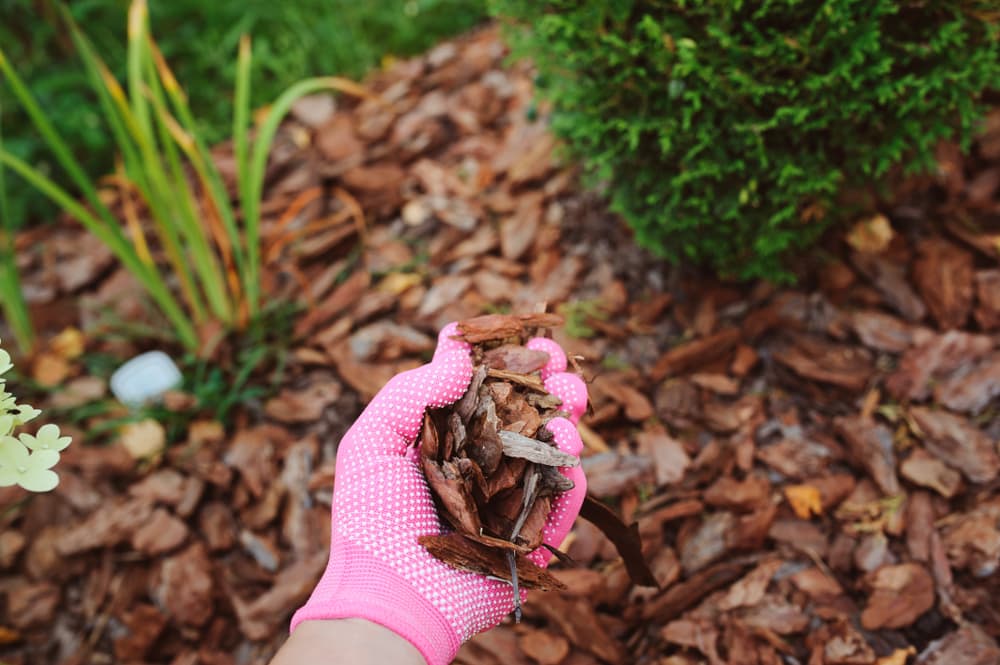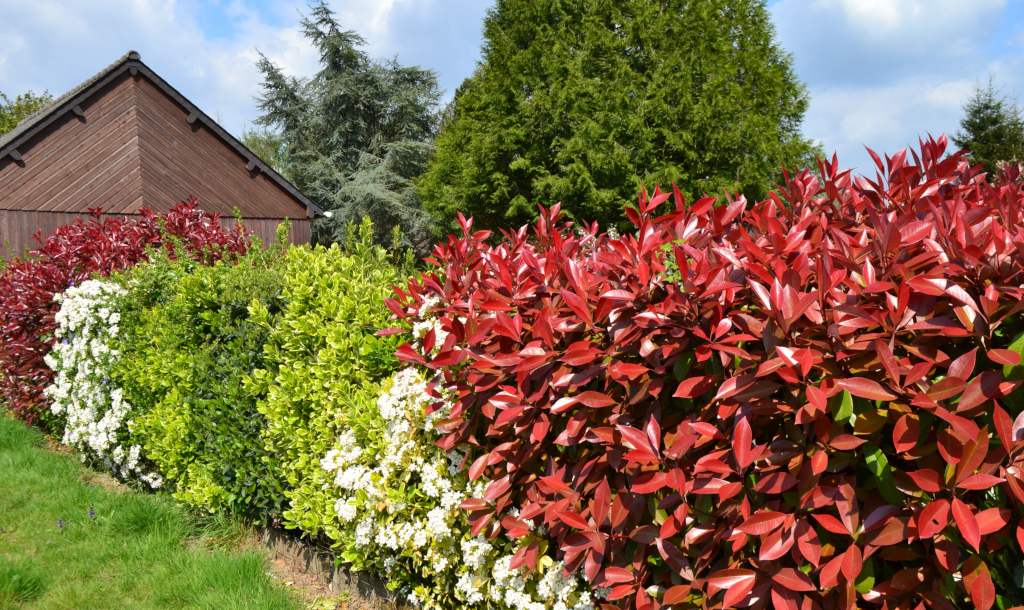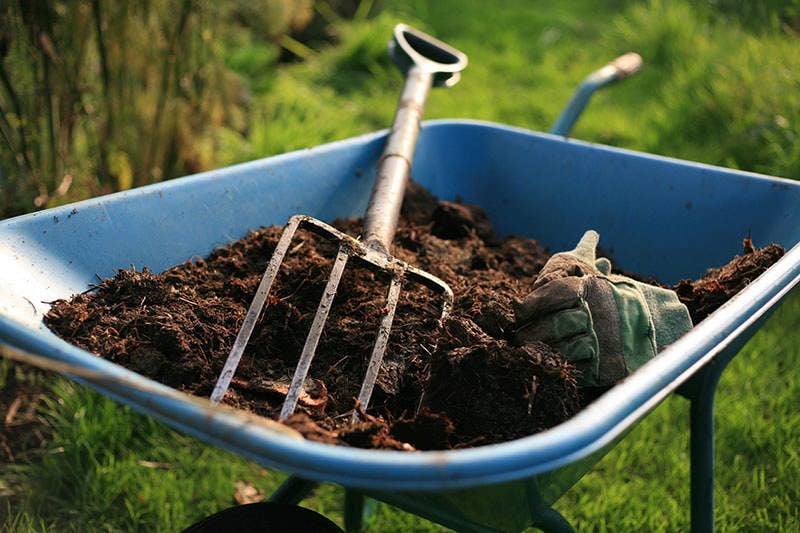How to Effectively Use Bleach as a Weed Killer in Your Garden
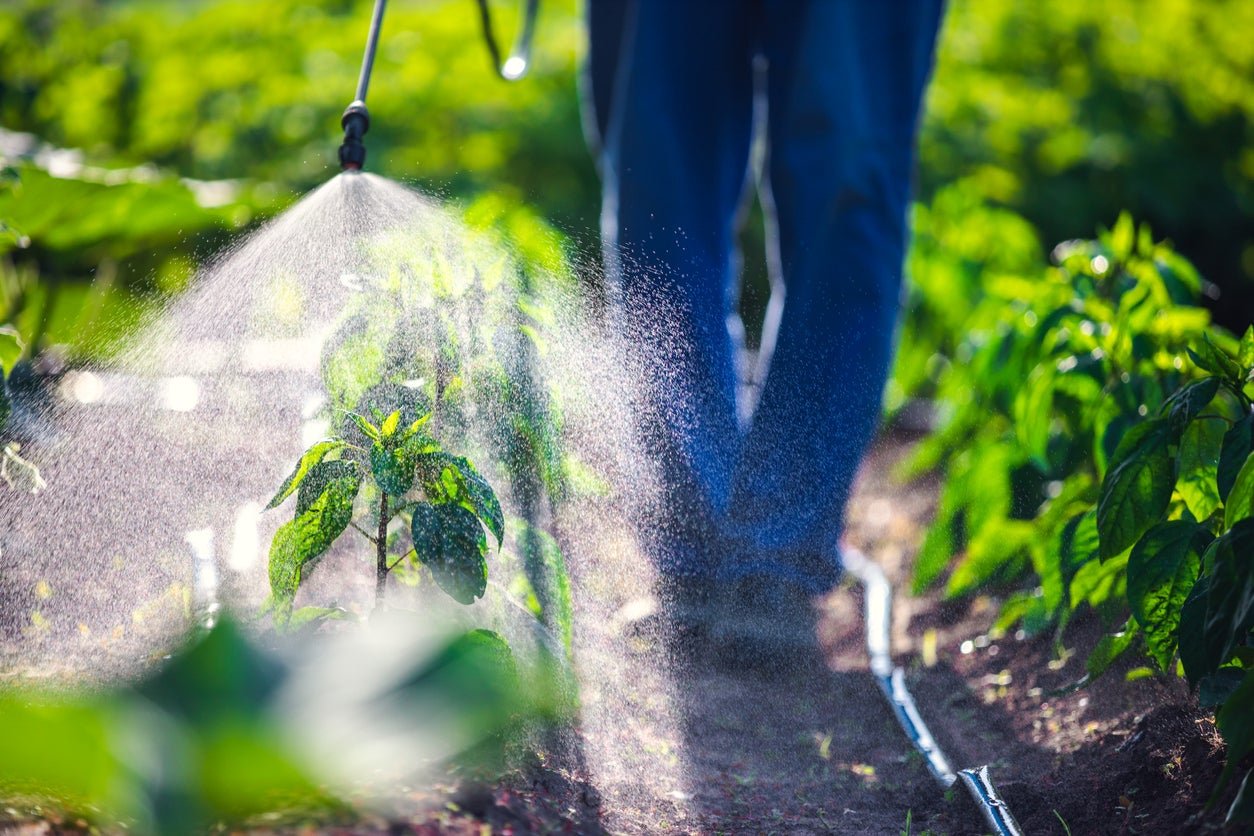
Table of Contents
In your beautiful garden, something that is most unwanted is probably a weed. Right? Yes, weeds are the most unwanted and harmful plants that could affect the growth of flowering, fruiting, and vegetation.
In such moments, only one thing could reassure you: killing the weeds. What’s on your mind? Do you think of cleaning weeds with bleach? Of course, you can do that because bleach, as a weed killer, does a wonderful job. Bleaching can help you get rid of weeds in the garden.
But, before spraying it all over your garden, you should read and understand a complete guideline on bleaching. This article is mainly written to inform you of the effectiveness of bleach on weeds and provide some important information on using bleach safely. So, are you ready to find out the details? Here we go.
A Basic Idea of Different Types of Bleach
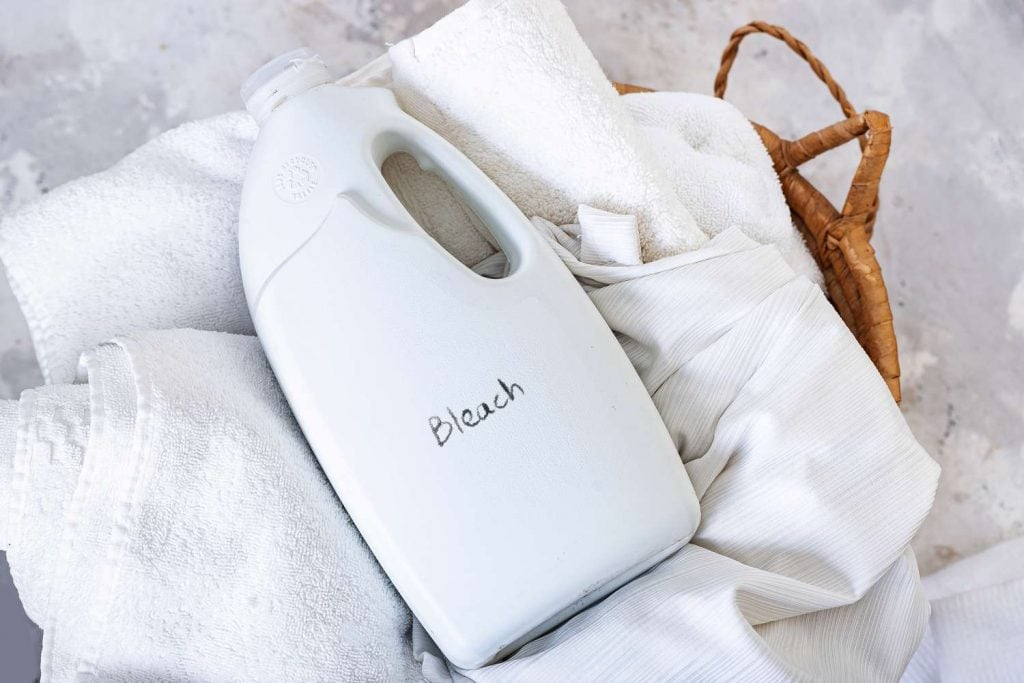
Bleaches are mainly of three types and are used for most household and industrial purposes.
- Peroxide-based bleaches: In this bleach, the active agent is oxygen. It is created by the decomposition of the hydrogen peroxide compound.
- Sulfur dioxide-based bleaches: In this type of bleach, sulfur dioxide is the active agent. It comes from the decomposition of an oxosulfur anion.
- Chlorine-based bleaches: Chlorine works as the active agent here. It normally forms from the decomposition of some chlorine compound; for example – chloramine or hypochlorite.
How Does Bleach Work Against Weeds?
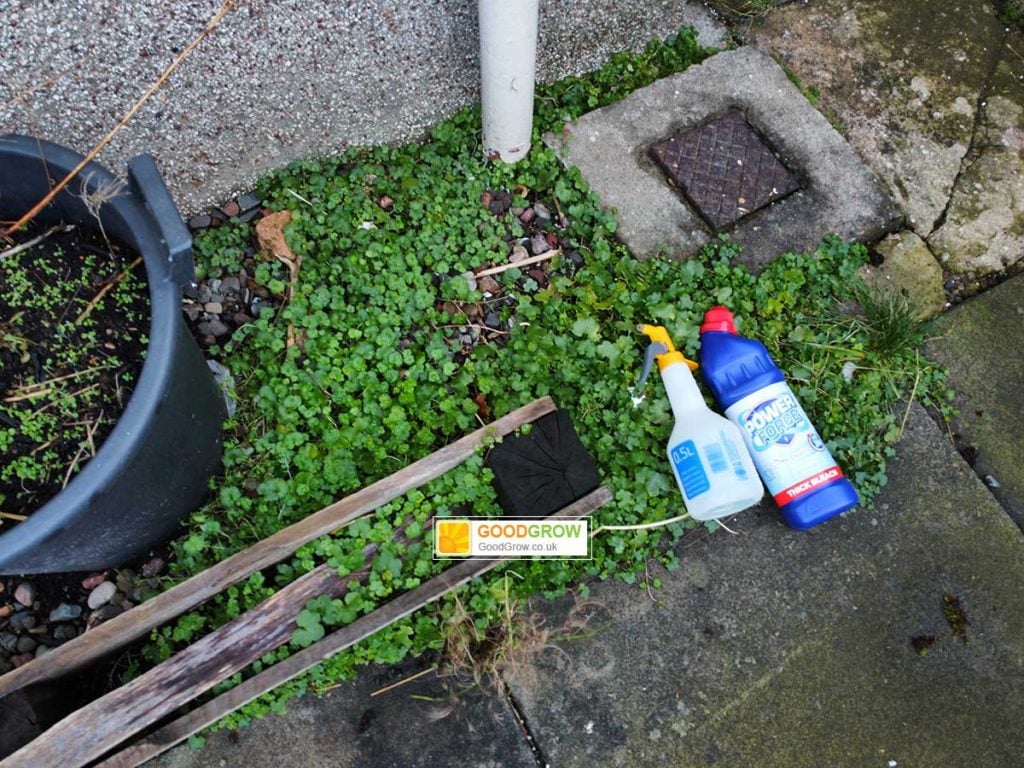
Bleach, as a weed killer, has the potential to work as a herbicide. After application, it takes 1 to 3 days to kill weeds effectively. Bleach works the same for tiny weeds as it does for massive ones such as ivy, brambles, or knotweed.
Bleaching is used because it can destroy unwanted plants, weeds, and insects that could cause harm and stop the growth of good plants. Bleach is a chemical but is used as a herbicide; because of its composition.
The plants treated with bleach turn brown, lose leaves and die. However, the time may vary; sometimes, it takes at least four days to kill tough grasses. Sometimes, more than one round of spraying bleach works more effectively to kill the weeds.
Is Bleaching a Good Option to Kill Weeds?
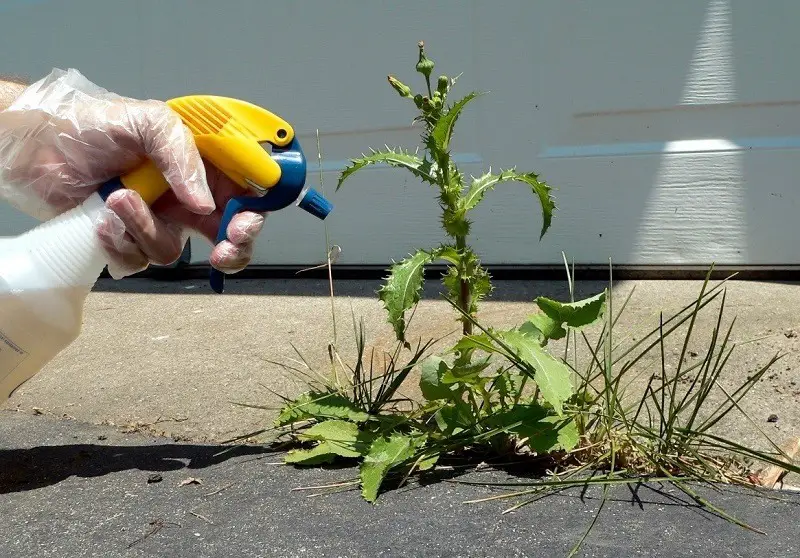
Do you know that bleaching is a cost-effective way to kill weeds? As bleach is much cheaper than the other herbicides available on the market, it is a good way to save hundreds. This cost-effectiveness makes bleaching a good option for those searching for nominal options to eliminate weeds.
Bleach is not only popular for killing weeds but also for stopping and preventing their regrowth. It is a convenient solution for busy people, and the best part is that even one application of bleach is enough to see the efficacy of bleach as a weed killer.
Though the benefits are enough to consider it a weed killer, as it is not a herbicide, it may harm other plants and ecosystems.
Does Bleach Have the Power to Kill Weeds Permanently?
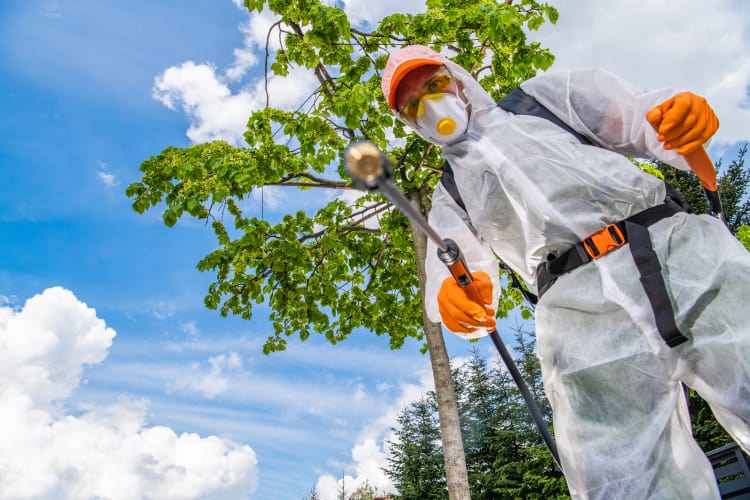
Bleach is highly potent in killing weeds permanently. The soil in the area gets highly acidic where the bleach is applied. It also prevents weeds from regrowing in the same area. However, as bleach is a harmful chemical that harms the environment, bleach should be used cautiously.
Don’t use bleach as a weed killer in flower beds, fruiting plants, or lawns. Spraying only over the weeds is recommended.
How Quickly Can Bleach Eliminate Weeds?
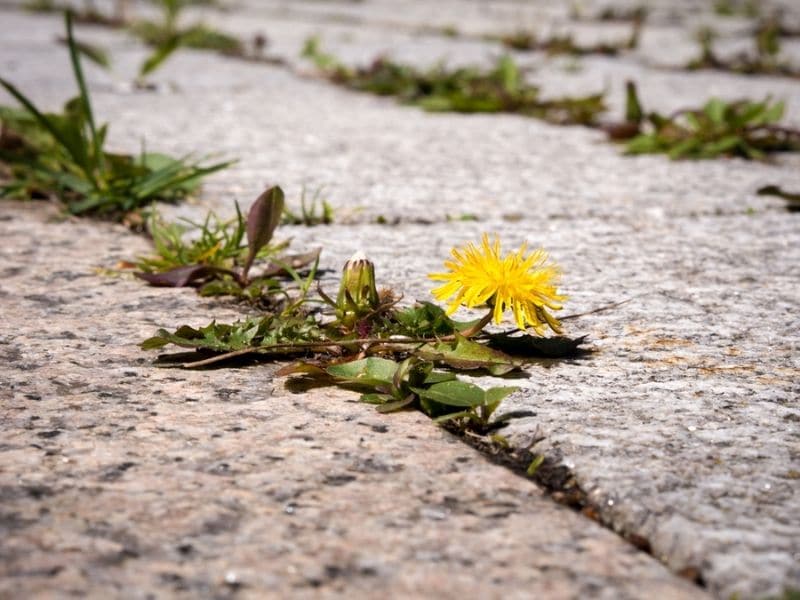
Bleach may take 2-3 days to kill the weeds fully. The dilution ratio is 1:1 while applying. Bleach is a powerful chemical, so spraying it safely is extremely important. The chemical bleach causes harm to the surrounding plants and soil. Additionally, if the talk is about spraying concentrated bleach, handling it with care is necessary.
Can You Pour Bleach Directly on Weeds?
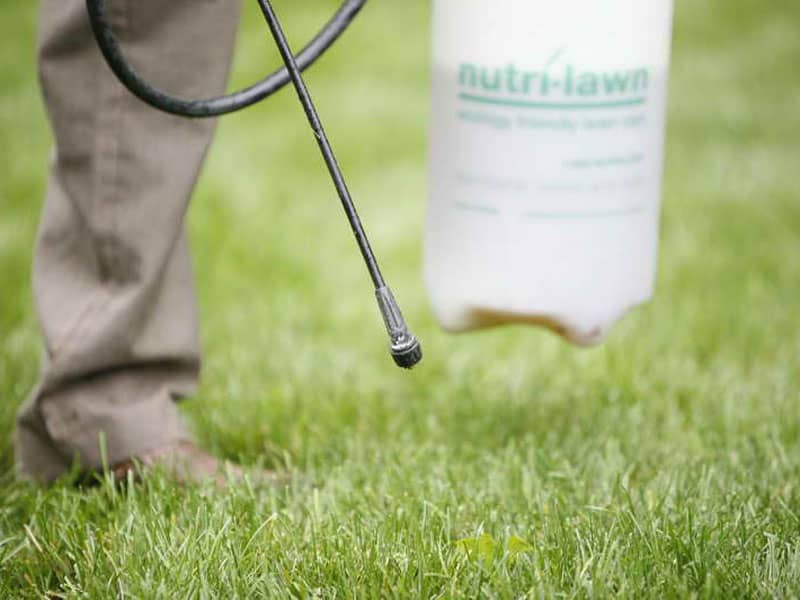
Yes, some bleach can be sprayed directly on the weeds to kill them. It will work without dilution if you pour bleach directly on the weeds. But, it is also extremely important to be cautious about bleach, as it may affect the garden’s health. It is why it is recommended to dilute the bleach before use, and then you can carefully apply it to the weeds.
Does Bleach Work Effectively to Kill Weeds from The Root?
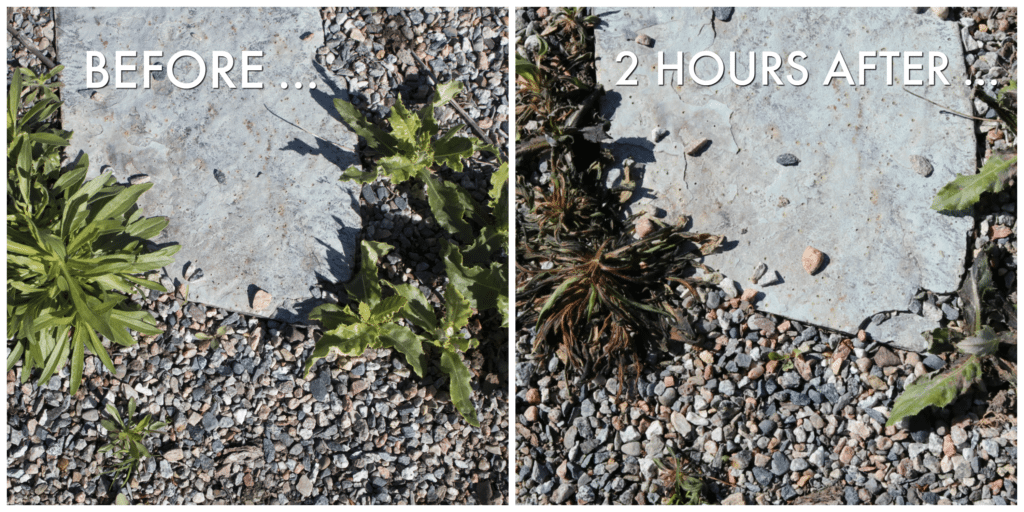
If you want to know whether bleach as a weed killer can effectively kill weeds from the root, the answer is yes. Bleach is a potent pesticide, not a herbicide, but it can help you eliminate strong weeds and grasses.
As the power of bleach is strong, it may harm the land and aquatic life. If you own a garden, it takes months to prepare the soil. If you don’t spray bleach cautiously, it may harm seedlings and big plants and affect the plantation of fruits and vegetables.
Why Is Bleach a Better Solution than Vinegar for Cleaning Weeds?
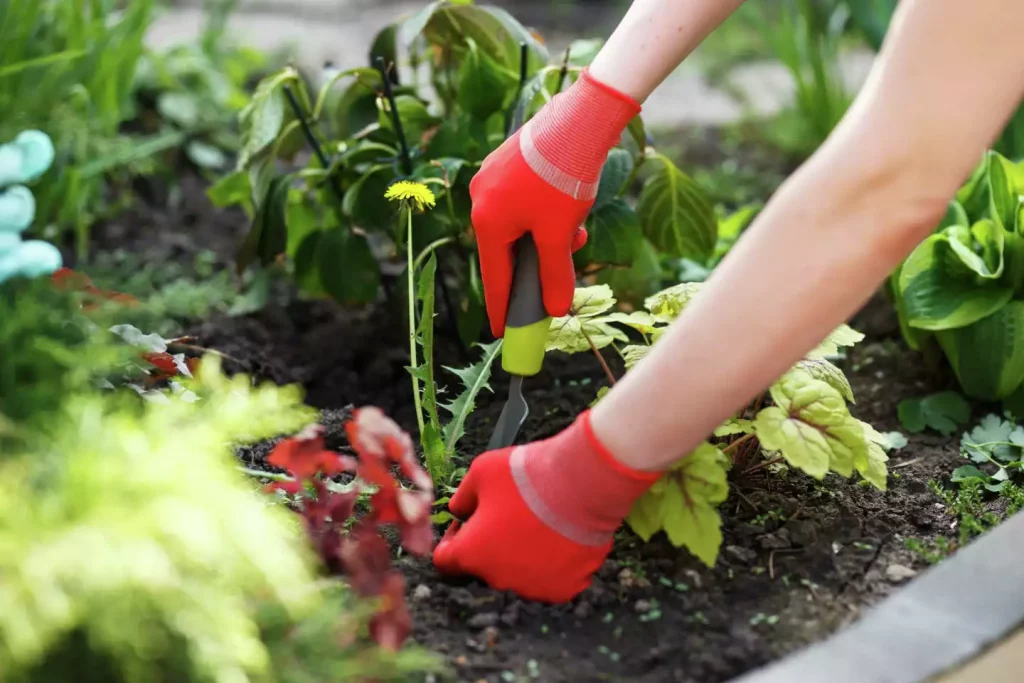
Both vinegar and bleach can effectively kill weeds. There are also ready-to-use weed-killing options available in the market. However, making your own is also great in the long run. Vinegar is not a permanent solution for cleaning weeds. At the same time, bleach is a winner when the talk is about long-term results.
Bleach works much better than vinegar when it comes to killing weeds. When vinegar is used, weeds often grow back. Bleach has a higher toxicity level; however, when it comes to killing weeds, bleach as a weed killer is better.
Are There Any Side Effects of Using Bleach as a Weed Killer?
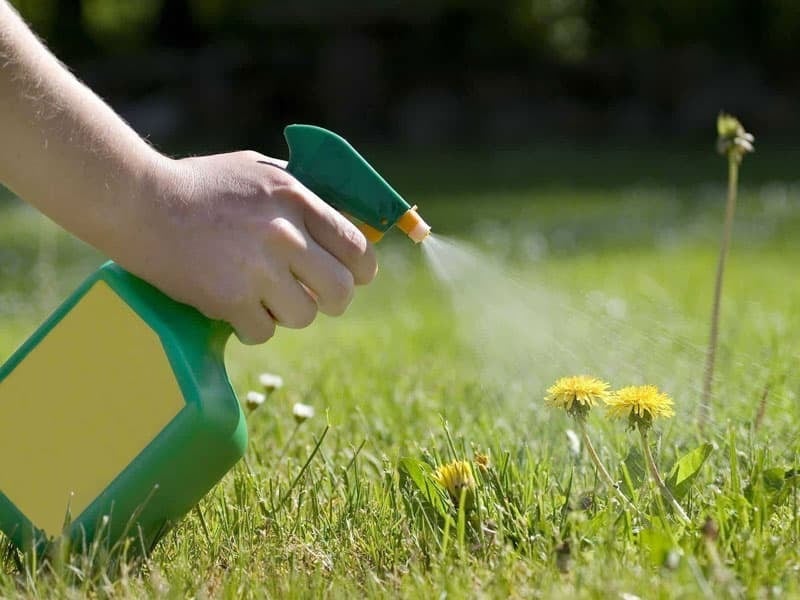
Sometimes bleach has harmful side effects. When it is used undiluted, it may cause skin burns and irritation. It is highly suggestive to keep them away from the eyes. Bleach as a weed killer is a great DIY. It causes staining and damage to the concrete surfaces.
Taking safety precautions when using bleach as a weed killer is also suggested. Wearing gloves and safety goggles is important. You should also avoid spraying bleach on windy days. Otherwise, the chemical particles may blow into your eyes, nose, and ears. Other than this, the entire garden may get filled with the chemical. Ensure no children, older adults, or animals are in the garden while spraying bleach.
Remember, using excessive bleach on garden soil should be avoided. Don’t mix bleach with other chemicals, as you don’t know how they may react. Planting anything in the same spot after using bleach should not be done. You should flush the area with a lot of water to remove the acidity from the oil created by bleaching. It is advisable to keep a gap between bleaching and plantation.
How Often Should You Use Bleach on Weeds?
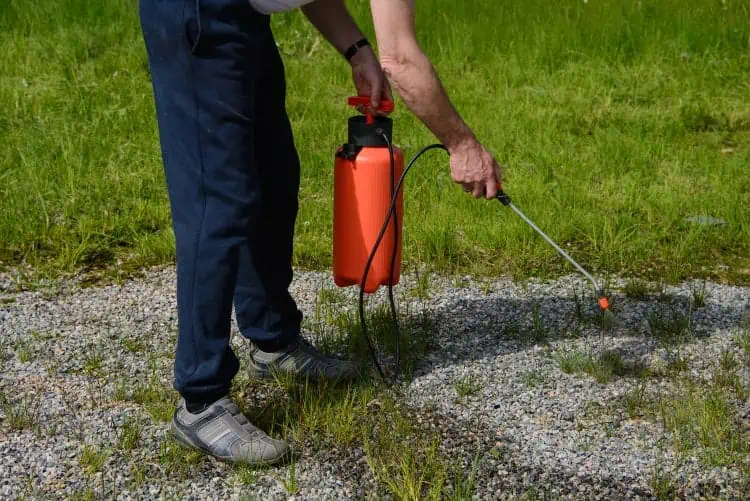
You can often use bleach as a weed killer to kill weeds if there is a huge regrowth. But, spraying a diluted bleach solution on the tough grasses and weeds is suggested. The easy application of bleach two to three times is ideal for eliminating the hard weeds.
What Precautions Must Be Taken Before Using Bleach on Weeds?
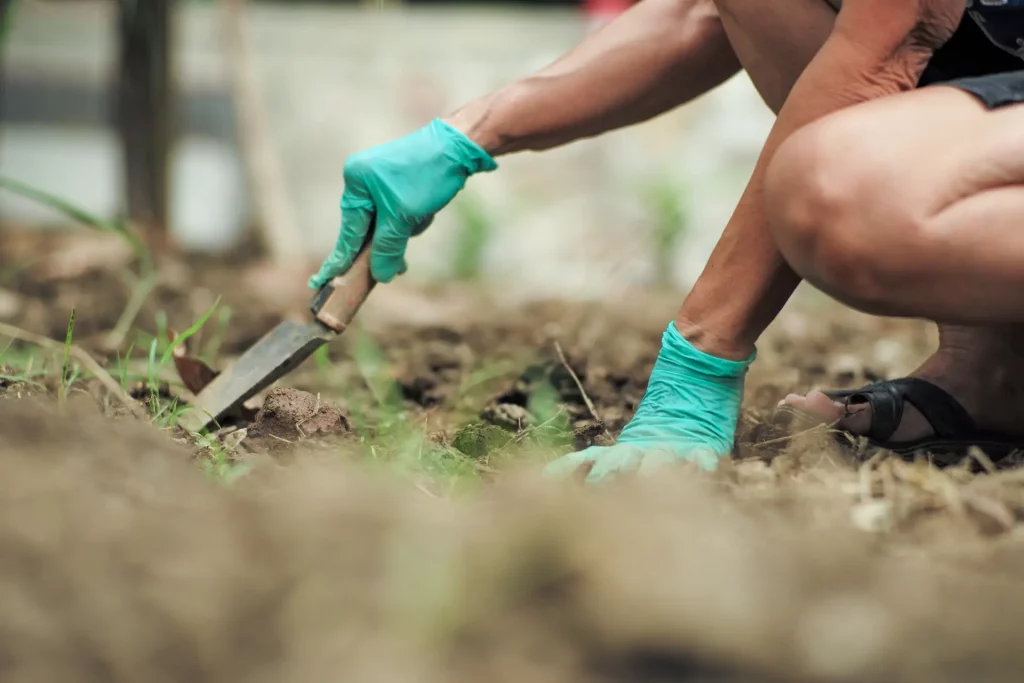
Remember that bleach can irritate your eyes and burn your skin because it is very corrosive. It can also damage and stain concrete surfaces. Make sure to take proper care when you use bleach as a weed killer.
Here are some precautions for your safety:
- Wear safety goggles and gloves when making and spraying bleach solutions.
- Be sure to pick a day that is calm. The wind may blow the chemical particles of bleach, and they may go into your ears, nose, and eyes.
- Blend with other chemicals only after confirming their chemical reaction.
- Avoid excessive use of bleach. Wait a few days after a single application.
What Should You Do if Bleach Spills Accidentally?
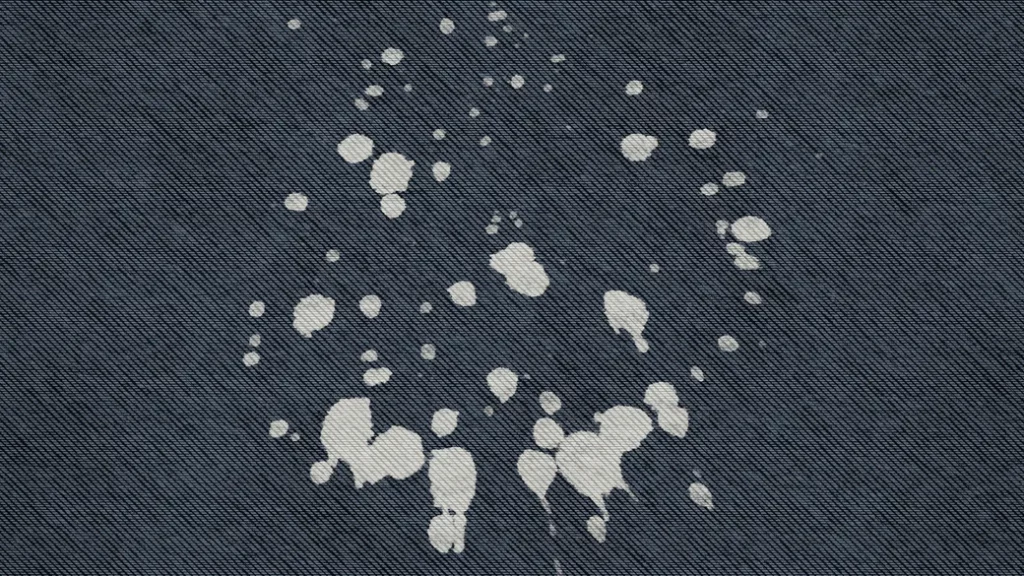
- If you spill bleach accidentally on grass or in your lawn or garden, try to flush it with water as quickly as possible. The exposed area will get acidic due to the corrosive nature of bleach. Use as much water as possible so the garden soil does not get acidic.
- Some grasses and plants may die immediately, but flushing lots of water can save the soil from getting acidic. You can stop the contamination of the chemical and the rest of the vegetation from dying with lots of water flushing.
- Repeat flushing often before you plant anything. Aside from that, you can even use some fertilizer to neutralize the soil’s pH.
How to Make Your Own Bleach Weed Killer?
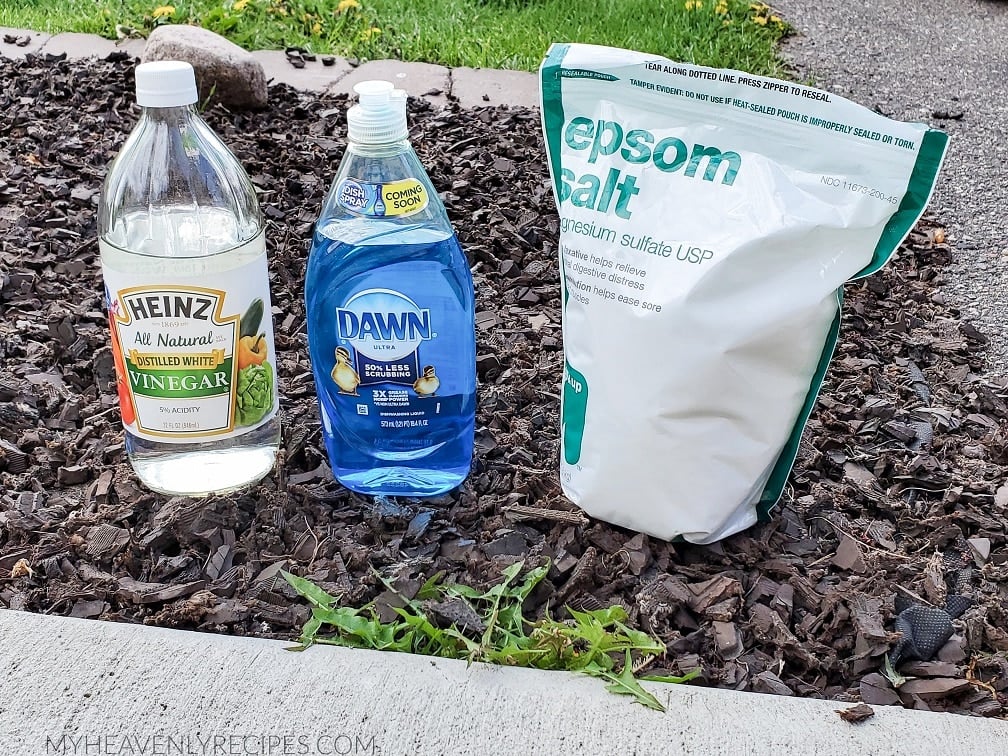
- The chlorine in bleach is so concentrated that it is toxic to the soil. Some beneficial organisms may be destroyed by applying undiluted bleach directly to the weeds.
- You can even opt for some DIY bleach as a weed killer in such cases. Vinegar is a strong component for killing weeds when mixed with bleach. You can use vinegar and bleach to make an effective homemade spray. But don’t dilute these two if you face a huge weed problem in your garden. Apply the application as a test to ensure how effectively it will kill weeds.
Summing It Up
When you are using a chemical, anything is hazardous. As you can see, bleach is also a chemical but is highly effective in killing weeds. If you know the application and the right proportion, you can easily apply bleach as a weed killer. You know it depends on you how you are going to apply this.
Nobody is a pro from the very first day. Nobody knows the right application until they apply it on their own. If you own a garden and love gardening, weeds are a common problem you often face. Keeping an eye on some tips and applying bleach as advised can keep your garden healthy and beautiful.
Any corrosive that is used too much could cause harm. It is suggested to read the article thoroughly, and you can surely get rid of weeds without harming your garden soil and plants.
Don’t worry; you can do it!
Frequently Asked Questions
Does Bleach Effectively Kill Weeds?
Yes, bleach is an effective chemical that can remove weeds from their roots. If applied often, bleach can also stop the regrowth of weeds. However, the application depends on how strong the weeds are. You can directly apply bleach or dilute it with water or vinegar. A solution with 50 per cent bleach and 50 per cent water is suggested.
Is Bleach Harmful to Grass?
Yes, bleaches are harmful to grasses and the soil too. When the bleach is applied to remove the weeds, the soil gets acidic in that particular place. It is advisable to apply the bleach cautiously so that other plants and flowers are not harmed. There are easily applicable bleaches sold all over the UK internet that don’t do much harm to the grass.
How Much Time Does Bleach Take to Kill Weeds?
Bleach can work on weeds within 1 to 3 days. However, some tough grasses take some time to die. While bleach is sprayed on weeds in gardens, there are no flowering, fruiting, or vegetative plants. Try to spray the bleach at the root of the weeds so that the result will be faster. Within 1 to 3 days, the weeds turn yellow, the leaves fall, and the plant dies.
Why Is Weed Control Important?
If you want a healthy garden, you must focus on weed control. Weed control is very important as it stops the natural growth of grasses and plants. Some weeds are harmful to other plants. These are the fastest growing compared to the good grasses, but they get tough over time and create pressure on other plants. It is suggested to keep an eye on these weeds and remove them from the root.
How Much Does Weed Control Cost?
Weed control is not costly at all. There are ready-made market products available both online and offline. These are extremely effective for killing weeds. If you check the internet, different brands claim it is great for weed. Though the price range varies from brand to brand, you can choose one according to your budget or do it DIY more cost-effectively.

![How and When To Mulch a Garden Effectively [UK]](https://www.thearches.co.uk/wp-content/uploads/How-To-Mulch-A-Garden-Effectively.jpg)
